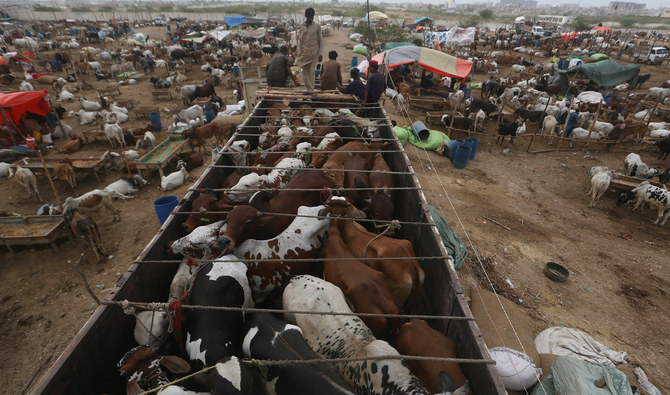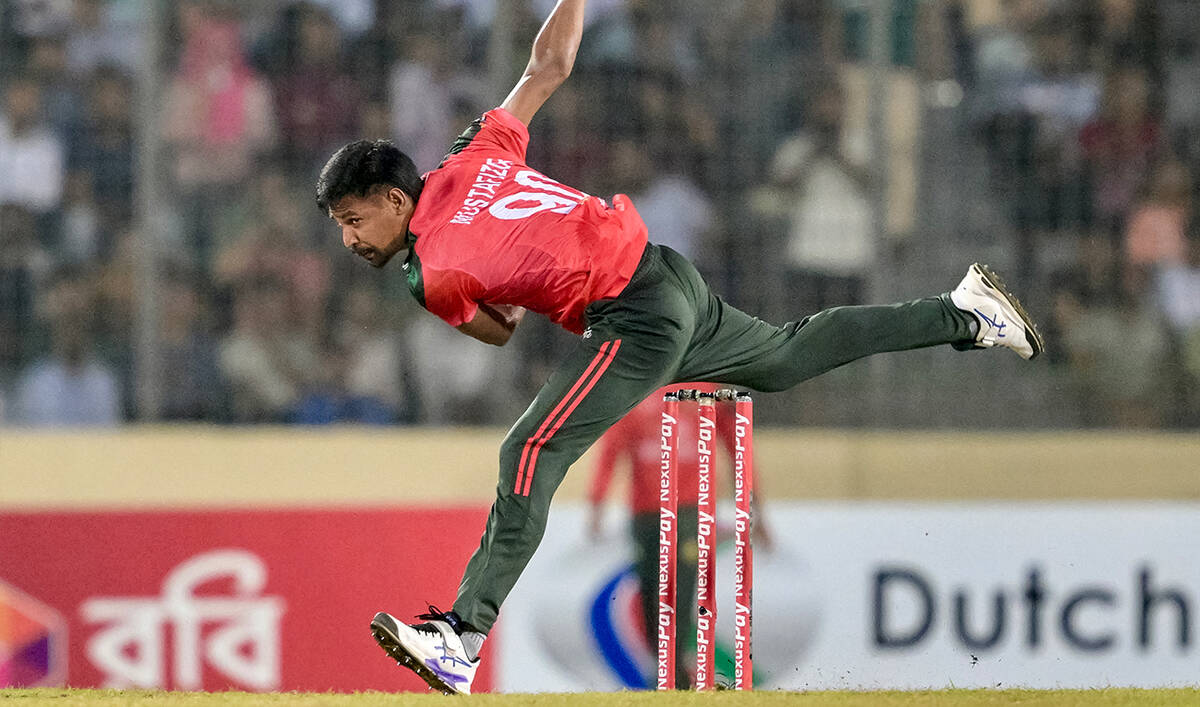PESHAWAR: The livestock department in Pakistan’s Khyber Pakhtunkhwa has ramped up efforts to control the spread of lumpy skin disease (LSD) among cattle ahead of the Muslim festival of Eid Al-Adha, a senior official said on Wednesday, adding that he feared the influx of animals into the province from other areas of the country would unleash a larger outbreak of the disease.
The Eid Al-Adha holiday is one of the two most important festivals of the Islamic calendar. Marking the willingness of Ibrahim, or Abraham, to sacrifice his son on God’s command, Muslims mark the holiday by slaughtering animals such as sheep and goats. The meat is shared among family and friends and also donated to the poor.
Cattle markets across Pakistan, the second largest Muslim country in the world, fill up ahead of Eid, with thousands of animals brought to major livestock bazars across the country, including in Khyber Pakhtunkhwa.
This year, the situation has.been complicated by breakouts of the lumpy skin disease that causes fever and multiple nodules on the skin and mucous membrane of animals. The virus was first reported in Punjab in October last year but later also spread among cattle in Sindh.
Prevalent in Africa since 1929, LSD is transmitted by bloodsucking insects like ticks and mosquitoes. It does not affect people and is rarely fatal.
“With the arrival of Eid Al-Adha, animals have been brought from Punjab and Sindh provinces and we fear the disease will spread further instead of being contained,” Sayed Asad Ali Shah, who works as epidemiologist with the livestock department, told Arab News.
He said precautionary measures, such as the formation of a task force and a cell for online reporting of the disease, had already been taken after LSD was first reported in Punjab and Sindh. Special checkpoints had been set up at various entry points of the province to keep infected animals from entering Khyber Pakhtunkhwa, he added.
However, the infection, which was previously reported in a few districts of Khyber Pakhtunkhwa, had now spread across the province.
“A total of 8,265 LSD cases were reported until Tuesday,” Shah said. “The disease has also claimed the lives of 203 animals.”
“After conducting a series of meetings, the government has released Rs100 million for vaccine procurement,” he said. “We have an estimated population of nine million cattle excluding buffaloes in the province. So far, we have vaccinated 135,761 animals and used anti-tick spray on millions of others.”
Speaking to Arab News, the provincial government spokesperson, Barrister Muhammad Ali Saif, said the government was working closely with the livestock department to adopt precautionary measures and release necessary funds to control the disease.
“This is a serious problem and the disease is partly spreading because of the buying and selling of animals ahead of Eid Al-Adha,” he said. “People should cooperate with the government to contain the spread of this viral disease. We will also release more funds to procure more vaccines to protect animals.”
But Rehmat Gul Miani, a resident of Gomal, a dusty village on the outskirts of southern Tank district, said several LSD cases had been reported in his area but authorities were not doing enough to vaccinate animals.
“Several animals in our neighborhood have been infected,” he said. “Livestock officials should take measures to contain the disease before Eid Al-Adha. Otherwise, people will be reluctant to buy sacrificial animals even at cheaper rates.”



















